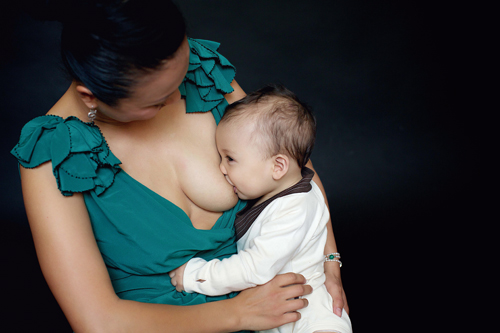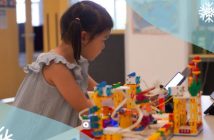
The dust – or powder – may have settled from the infant milk scandal that rocked China in 2008, but many parents remain concerned about whether the formula they feed their babies is safe. The incident, in which six children died and a further 300,000 experienced adverse effects from the presence of the chemical melamine, led to a raft of tough new measures for formula manufacturers.
In December, the China Food and Drug administration announced a new licensing system in which milk powder producers will need to meet safety standards for the quality of its ingredients and production processes. Companies have until May 2014 to apply, after which the regulatory body will publish a list of producers approved for sale.
But it remains frustratingly difficult for parents to know whether Chinese brands are safe. Imported products now make up almost 80 percent of the market in major Chinese cities. Given these uncertainties, many Beijing doctors now only recommend importing formula from other countries.
But even then, how can parents choose between the countless options available? There might not be as much to the decision as you think. Claims of being “closer to breast milk,” “more complete,” and other assertions of quality should be treated with cynicism. If the formula you are using comes from a country with tight regulations such as those within the European Union, there will be very little difference in their nutritional value.
There are some variations, including whether the formula is cow milk- or soy-based, but the core ingredients are closely controlled, leaving little room for manufacturers to justify their claims of superiority. Choosing between these products may simply come down to your infant’s preferences, especially in cases where they are allergic to cow’s milk or lactose intolerant. In these instances there may have to be an element of trial and error in finding a brand that is most suitable
for your child.
Specialist formulas with various purported benefits are available. But an overview of research by UK consumer watchdog Which? found that these supplementary formulas, which claim to alleviate problems such as poor sleep, excessive crying (colic), or reflux, have no strong supporting evidence for their use and were deemed unnecessary.
Breast Is Best
But before worrying about how to find a suitable brand of milk formula, a more fundamental question needs to be asked: Is breastfeeding still an option?
Most of the medical profession agrees that breast milk is preferable and the World Health Organization (WHO) explicitly favors breastfeeding,
which it “actively promotes… as the best source of nourishment for infants and young children.”
There are a number of compelling reasons for this, according to a pediatrician at New Century Women’s and Children’s Hospital,
Dr. Xiaohui Li.
“Breast milk has rich unsaturated fatty acid and lactose, [which aid]infants’ digestion,” she says. “In addition, the ratio of calcium to phosphorus is two to one, making it easier for the absorption of calcium.”
Breast milk also contains antibodies that can help protect from illness and reduce the likelihood of eczema, obesity, and diabetes later in life. The WHO cites further health benefits for the mother, which Dr. Li supports, saying that breastfeeding can help the mother’s uterus recover from childbirth and decreases chances of breast cancer.
But according to UNICEF, only 28 percent of infants below 6 months of age in China are exclusively breastfed, compared with the global average of about 40 percent. While there will always be legitimate reasons why some mothers are unable to breastfeed such as a naturally low milk supply, serious illnesses, or the use of certain medications, these instances are rare. The discrepancy suggests that there are cultural factors at play.
Embarrassment or stigma around breastfeeding in public and unsympathetic working environments may contribute to these figures, but many of these deterrents can be overcome, according to Ivy Makelin, a leader at the Beijing branch of the non-profit group, La Leche League (LLL).
Her organization provides information, support, and encouragement to mothers who have difficulty breastfeeding. Pain, difficulty latching on, and concerns about milk supply are the most common concerns among new mothers. But Makelin says that LLL’s methods help a range of mothers, including those moving from mixed feeding (a combination of breast and formula milk) to exclusively breastfeeding.
“With proper help, at least 95 to 99 percent of women can breastfeed successfully,” she says. “I really believe that every mom wants the best for her baby, and if every mom in the world could know the truth about the risks of formula feeding…almost nobody would willingly feed [it]to their baby.”
People’s motivation to work past conquerable difficulties may be lessened by the formula industry’s marketing strategies. Makelin accuses producers of “more and more rampant” marketing and claims that they regularly breach laws against the promotion of breast milk substitutes. She charges formula companies with paying doctors to promote their brands, influencing moms-to-be through pregnancy courses, and presenting formula as being as nutritious as breast milk despite only containing a fraction of the nutrients.
Even those with genuine difficulties producing enough milk can still find ways to avoid formula. One such mom, Marie Hamilton, was initially unable to produce enough breast milk for her first daughter because doctors believed that her body was withholding large amounts of a milk-producing protein called prolactin to protect her body against a benign brain tumor. She was living in the US at the time and was able to find milk donors. But when she became pregnant six months after relocating to Beijing, Hamilton feared the situation might be more challenging.
“I put an online ad in a parenting group I’m a member of seeking out donor milk. Within a few days, I’d already had several moms responding stating they’d love to be ongoing milk donors for our baby. I could barely believe that I was able to secure donor milk ahead of time in China.”
But even though she was then able to breastfeed (thanks in part to the removal of her brain tumor), Hamilton’s second daughter’s weight fell dramatically. The lactation expert at the hospital observed good latch but was unable to ascertain the source of the problem.
Hamilton once again turned to donors while she struggled to find a solution. Her story was even publicized on social media site Weibo, a move that solicited donations from as far afield as Shanghai.
Despite a Beijing doctor initially dismissing the possibility of her daughter being tongue-tied (a condition in which thickened membrane connecting the tongue to the underside of the mouth prevents effective nursing), a chance discovery at a breastfeeding conference revealed that this was indeed the problem. Minor surgery rectified the problem and within minutes of the procedure she experienced pain-free nursing
for the first time.
“While there is a purpose for formula, I believe wholeheartedly that the risks of obtaining and using donor milk far outweigh [those]of short-term formula use,” she says. “One significant lesson I’ve learned from my experience is that breastfeeding is about more than just the milk. It’s about an attachment between a mother and her child.”
* The names of some featured in this article have been changed to protect their privacy.
New Century Women’s and Children’s Hospital (NCWCH) 北京新世纪妇儿医院
Children’s healthcare specialist Dr. Xiaohui Li specializes in immunization, growth monitoring and assessment. She offers consultations in Chinese, with English- and Japanese-speaking doctors also available at New Century. As well as pediatrics, the hospital offers gynecology, obstetrics, and urgent care services for women, children, and teens up to 18 years of age.
Daily 24hrs. 51 Wangjing Beilu (Wanghu Park south gate), Chaoyang District (5178 3366) www.ncich.com.cn 朝阳区朝阳区望京北路51号院(望湖公园东门南)
La Leche League (LLL)
La Leche League is a non-profit organization that promotes breastfeeding through mother-to-mother support, encouragement, information, and education. Monthly meetings are open to all interested in breastfeeding (including nursing babies) and take place in a variety of locations across the city. For more information, contact Serena at xiaohua68847@gmail.com or visit www.llli.org/beijing.html.
Photos: Courtesy of LLL
This article originally appeared on p22-23 of the beijingkids March 2014 issue.
Check out the PDF version online at Issuu.com



